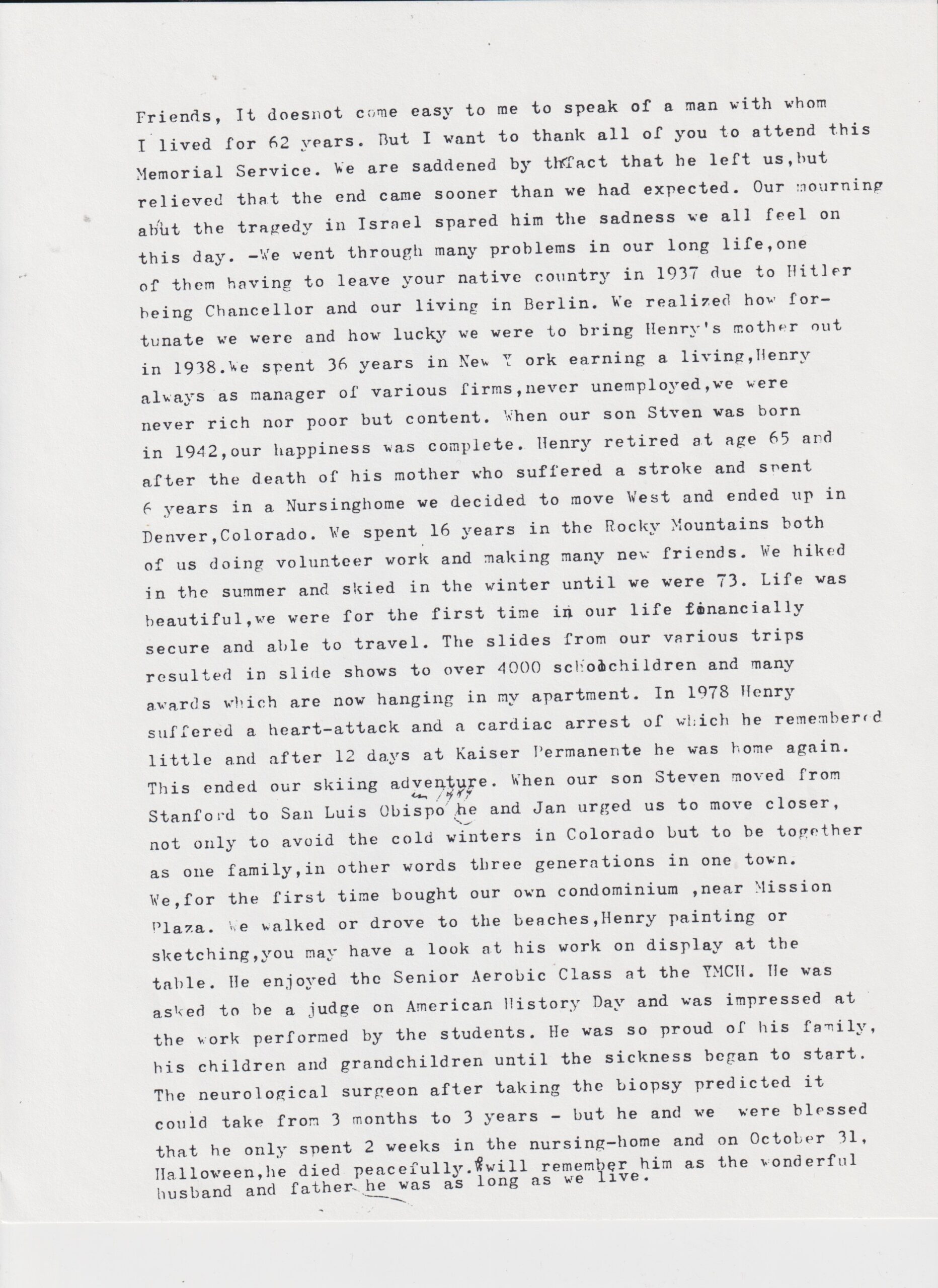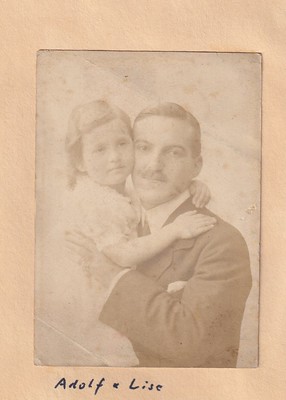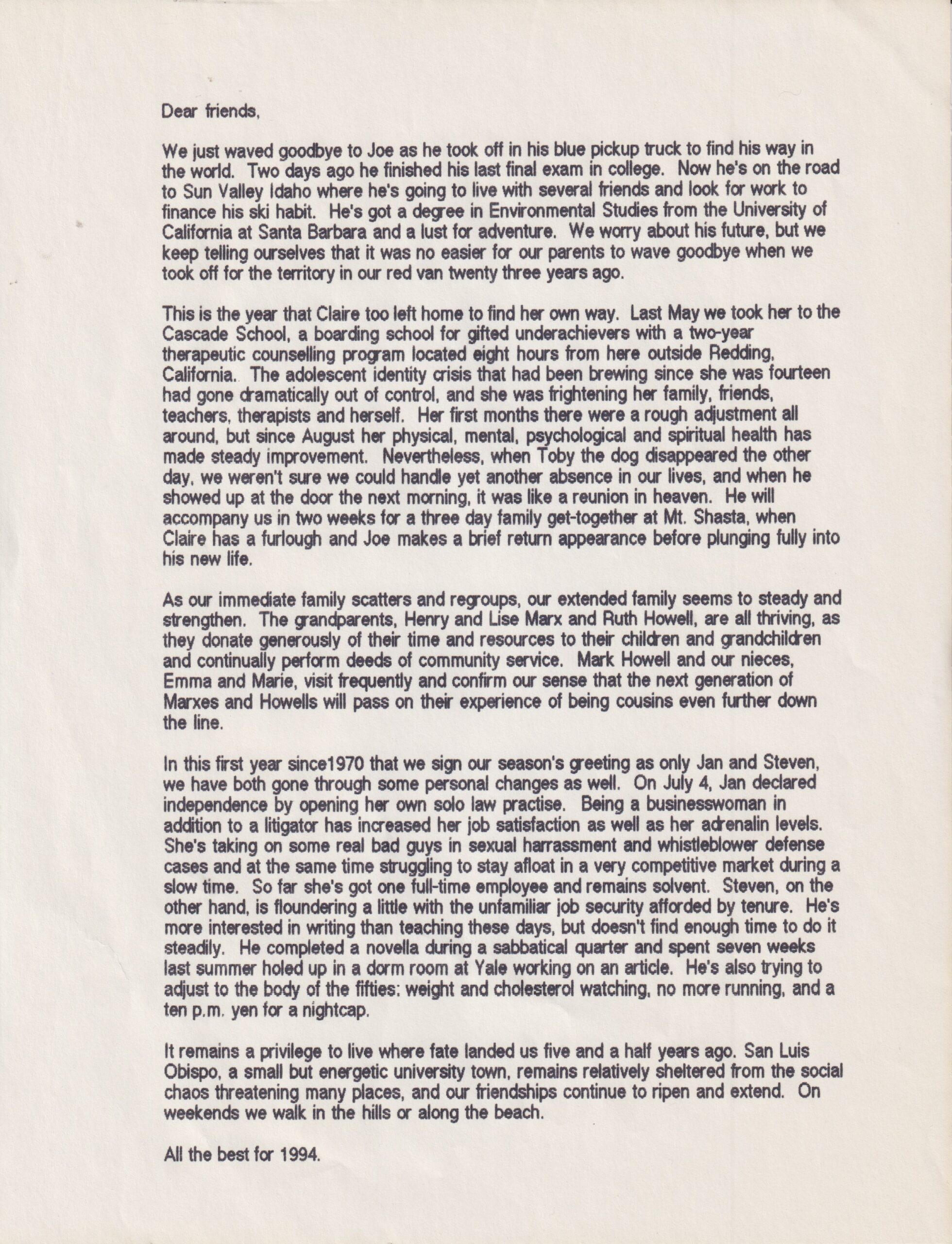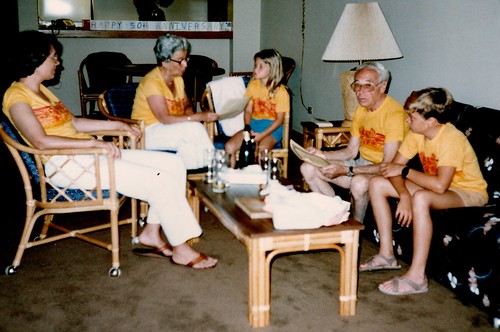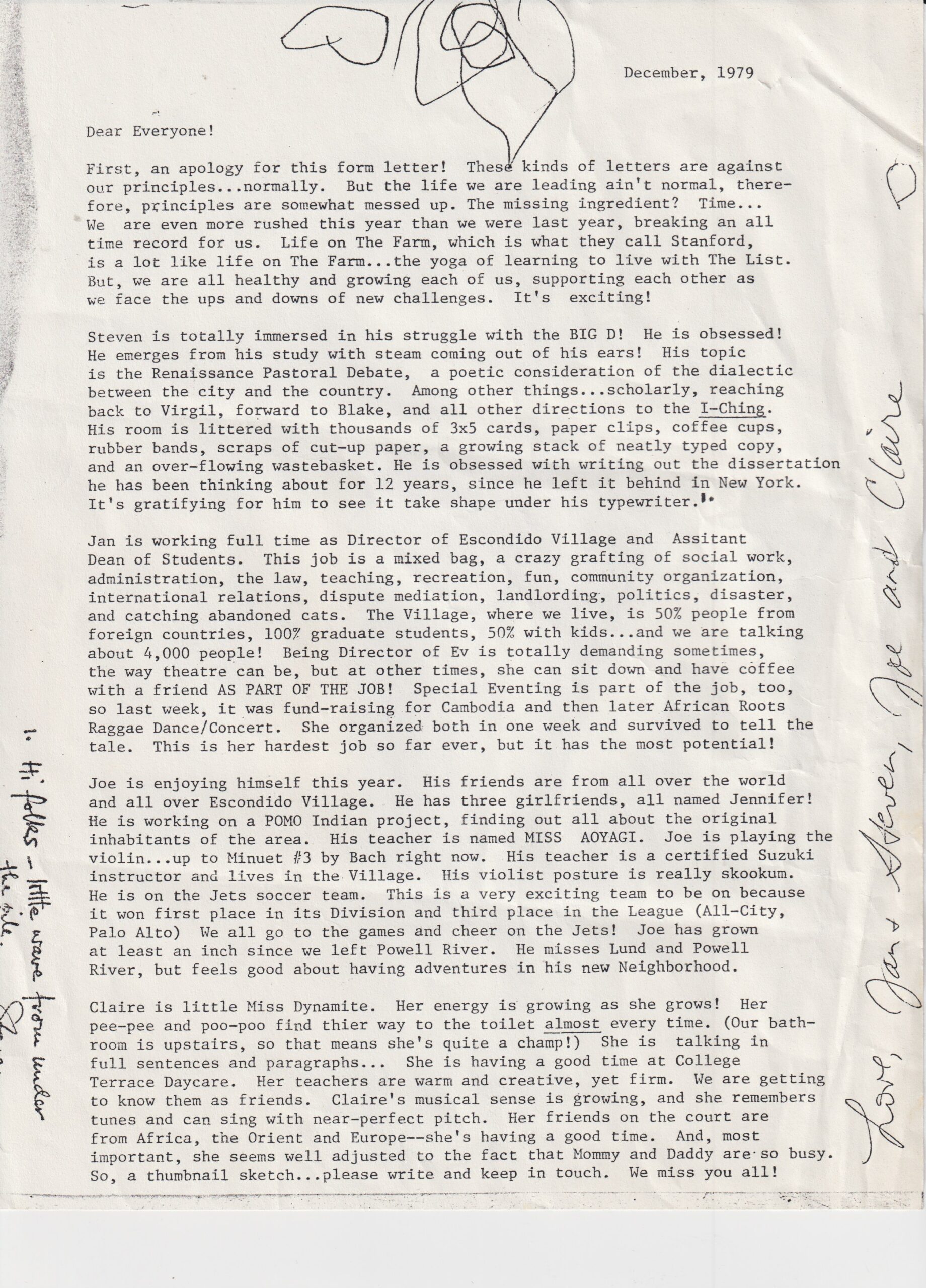The Day My Mother Died
Wednesday, January 19th, 2005Louise Marx: September 6 1910”January 19 2005
I wake up at 3:30 am praying for Lise’s smooth passage, knowing the end is near. When the alarm goes off at 5:30 I feel weak and vulnerable from a lingering cold that I suspect results from teaching anxiety, stage fright about two presentations last week, and unconscious stress from the impending end. Instead of my regular swim, I take a hot bath to relax tense muscles and reduce sinus pressure. I decide to wear a white shirt, tie and sport jacket and carry a cell phone to work in case the call should come today. My morning meditation brings a burst of tears when I think of Jan and the transiency of life.
I give my all to the morning composition class and a lecture on Shakespearean tragedy. When it’s over at noon, I’m drained but exhilirated. As students leave the room, the phone rings in my pocket. A person at the nursing home reports that Lise has just died. I say I’ll be there soon. I phone Jan while walking to my office; she’s just pulling up to Cabrillo to check on Oma on her way to the gym. I tell her the news and she comes to get me. I reluctantly decide not to try to get back in time for my 1:30 class and ask the secretary to run a videotape of Othello for the students to watch.
We enter Cabrillo for what may be the last time, the odor more pungent than usual. Josephine, the reserved nurse’s assistant who tended my father Henry in 1995 and who has been with my mother for the last four years, is tearful and gives me a hug. Curtains are closed around Lise’s bed. She lies flat, skin silken smooth, facial bone structure, nose and closed eyes in fine relief: a perfected mask. There is still color in her cheeks and warmth on her brow. She feels receptive to my stroking and comfortable with my presence for the first time in many years, the ever- thickening wall between us now departed along with her spirit. I feel free to start replacing the resistant body and resentful soul that it irked me to call Mom with memories of the delight I enjoyed in her presence as a young boy”the one she called “Schlumbie.” Those memories have been recalled lately when I am with Ian, our three year old grandson.
We sort through the closet and nightstand, selecting the few items to keep, the rest to leave in the communal pool of nursing home laundry, hearing aids and spectacles. Long ago we’d liquidated Lise’s condo and then her unit in the Assisted Living facility at Garden Creek. While Jan takes a load to the car, I go to the storeroom to find the scissors I used to cut the stem bottoms off the flowers I brought every week. I clip a lock of her white hair, which is still thick and wavy. The empty hearing aid box I place it in slips into my pocket. By 1:15 we leave through the main lobby making no eye contact with those remaining.
At home, I collapse on the bed, sleep for an hour and then walk to Cal Poly for my 2:50 office hour. Thankfully nobody shows up, and I meet Jan at the Benefits Office at 4:00 for a long planned conference with the retirement counselor. We spend an hour figuring out how to maximize the monthly sum we will receive until our deaths. Neither of us mentions that we have just come into an inheritance. Right now, loss means gain. May it be so too for Lise.
We walk home and I nap again, then call our son Joe. He knew this was coming, and finds words to amplify the positive that we no longer need to think of her as the presence in the nursing home, the wraith awaiting transport across the river, but as someone we can remember fondly. There will be no funeral or memorial, though he’d be willing to come for one. He suggests a scattering of ashes on a mountain in the Rockies, which she and Henry made their own, when we visit in March.
I phone our daughter Claire, who has asked about Oma at one of our infrequent encounters. I leave a message suggesting this might be an occasion for her and Jan and me to get together for the first time in a year.
As evening comes on I feel briefly energized for the task of remaking Mother, of undoing some of her last ten years. It was at the memorial for Henry in November 1995 that she said her life was over. A year before that she concluded her autobiography, “My Story.” I will go back to it, add some scanned photos and print a second edition.
Jan and I go to Tsurugi’s for Sushi dinner and walk in the dark along the creek downtown. We share our sense of the solemnity of the day, of our own mortality, of the awareness that gain also means loss. Recent long-needed rainstorms have caused the creek to crest and wipe out a large chunk of the bank. The fence protecting the natural riparian vegetation will have to be moved back.
When we get home there is a voice message: Ethan, our two year old grandson in Idaho, warbles “Hello Boppa, Hello Boppa, I love you.” It’s the first time he’s spoken to me on the phone. This is followed by expressions of sympathy from Amy his mom. A few minutes later, Claire calls and agrees that we three should meet. We are, as always during these conversations, halting, guarded, over polite.
I open the packet that had arrived in the morning from British Columbia. It’s Steve and Juliet’s Christmas letter and photo calendar loaded with pictures of Lund folk– including three generations of Marxes–and news of deaths and grandparenthood among our contemporaries.
I dig in the closet and find the pictures that Jan had put together for Lise and Henry’s sixtieth anniversary showing them in their twenties and eighties, radiant in both pairs. I set them on the bureau and get into bed with “My Story,” which I havent looked at since editing and typing it with her. For an hour, I read and marvel and pity and laugh.

